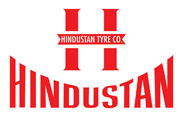Solid and pneumatic forklift tyres are the most common. Each tyre has a different tread, compound and ply rating, which help to ensure the tyre selected will suit the application best. By keeping your forklift tyres in good shape, you will reduce the stress and wear on the transmission as well as on the forklift driver. Safety and fuel efficiency are also significantly improved.
Choosing the Right Tyre
When fitting forklift tyres, there are two main options: press on or standard. While press on tyres are relatively simple to attach, they may not hold up as well on challenging terrain. Standard tyres, on the other hand, can be fitted in the same manner as car tyres. To determine the appropriate tyre size, it is important to calculate the load placed on each wheel. It is generally recommended to choose a tyre with the lowest inflation pressure for optimal performance.
Think about the working conditions and frequency of use for your forklift before selecting a tyre type. Rough and damaging surfaces call for thicker pneumatic tyres. Solid rubber tyres, also known as Puncture Proof, are now widely used and ideal for even surfaces and indoor use. For indoor use only, polyurethane tyres are typically used.
Today, the following tyres are available on the market
In contrast to pneumatic tyres, cushion tyres have a smaller turning radius, making them suitable only for smooth surfaces and warehouses with concrete floors.
The most common tyres today are solid tyres/puncture proof. They are similar to pneumatic tyres, but they are not filled with air, so they do not cushion. They do not puncture or go flat and are long lasting. It is ideal for indoor or light outdoor use.
Unlike truck tyres, pneumatic forklift tyres provide a cushion between the forklift and the ground, extending the forklift’s life. For uneven or rough surfaces.
Wheels made of polyurethane – Commonly used for indoor forklifts. The tyres are typically pressed onto the wheel. They have a high level of traction indoors as well as a ‘small rolling resistance’ that extends the life of the tyre. Forklifts such as reach trucks and walkie stackers usually use this type of tyre.
Specifically designed to prevent black marks on floors, non-marking tyres are solid tyres. The main drawbacks of non-marking tyres are that carbon black is removed from them, which in turn shortens their life span. Grocery and food processing factories are required to use these tyres.
Forklift tyres with foam filling provide a constant pressure in the tyre while preventing punctures. These tyres are designed to function like air tyres in that they cushion the forklift without causing punctures.
Inflation Pressure & Load
You should check your tyres every month to ensure they are at the right air pressure. The heat buildup from use can increase the pressure by around 15 psi, so check them every month. Never lower air pressure by bleeding, as it can increase heat buildup. Cover valves with caps to prevent dirt from entering.
Proper Driving
Having good driving habits is essential to getting the most out of your tyres. Avoid spinning, sudden starting, or breaking. By avoiding these bad driving habits, you will greatly extend the life of your tyres. High speed cornering and locking one wheel for sharp turns also wears out the tyres quickly.

